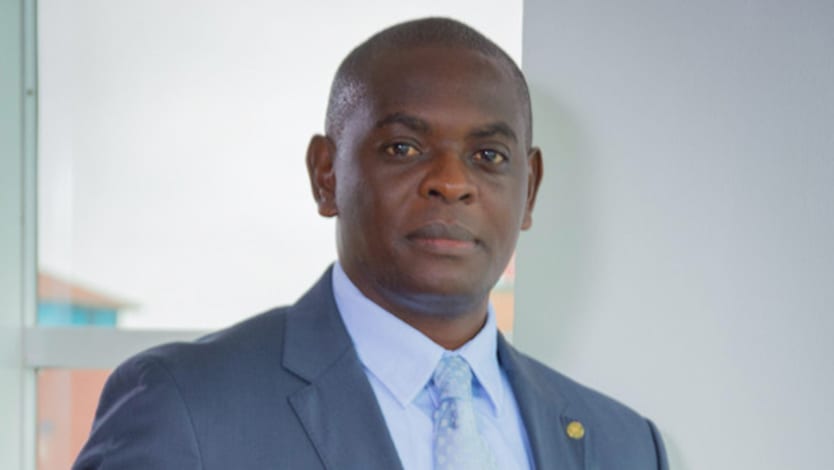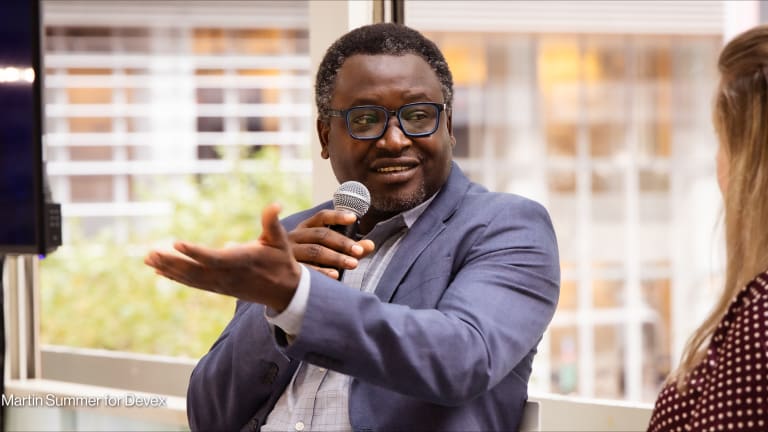
NAIROBI — Results in Kenya’s upcoming presidential election are expected to be close, and there is concern about post-election violence. But next Tuesday’s vote could also have an impact on how the thousands of international and local NGOs operating in Kenya, as well as other development agencies, do their jobs.
President Uhuru Kenyatta is being challenged by Raila Odinga. The pair also faced off in the last general election in 2013, when Kenyatta won despite being indicted by the International Criminal Court in connection with post-election violence in 2007 that left more than 1,100 people dead and at least 650,000 displaced. The charges were later dropped.
Dr. Alex Awiti, director of the East African Institute at The Aga Khan University in Nairobi, spoke to Devex about how the development sector’s future success in Kenya is dependent on how well the next president implements the nation’s devolution process, and the sector’s ability to adapt to that new political system.
“I think under Odinga, if he is to become president, the Public Benefits Organization Act could be repealed or revamped to take off the handcuffs which shackle civil society and NGOs.”
— Dr. Alex Awiti, director of the East African InstituteKenya adopted a new constitution in 2010, which created a new layer of government at the county level. In the 2013 election, 47 county governors and county assemblies were elected and these county governments were granted new functions and funds. The World Bank calls it “among the most rapid and ambitious devolution processes going on in the world.”
The shift will see development actors engaging directly with Kenya’s counties. The East African Institute provides research on social and economic development policies. Our conversation with Awiti below has been edited for length and clarity.
What has the operating atmosphere been like for the development sector in Kenya since President Kenyatta took office?
Kenyatta came into power under this cloud of the International Criminal Court and a potential indictment from the post-election violence of 2007. He was hostile and vindictive. He was constantly throwing tantrums, saying if the West is not going to speak with him, he will speak with China. He believed at the time, and still believes, that civil society had a huge role to play in helping make the case against him at the Hague. One of the first things he did was start this punitive legislative proposal of the Public Benefits Organization Act, which basically curtailed funding to NGOs and civil society, capping external funding at 15 percent, with 85 percent of funds to be generated locally. This is a country that has no history of local philanthropy. It basically puts these organizations out of existence. That became the backdrop of his demeanor and his presidency.
Based on that inability to have a broader conversation around development, he pushed for big infrastructure projects. That’s why you see huge problems with agriculture and some of the more important social developments, such as education. Donors were kind of freaked out, because he wasn’t engaged. A lot of the social development priorities are driven by donor engagement, donor funding. Those things suffered.
Government has a role to play, to interact within an ecosystem. Government doesn’t have all of the answers. I think he really kind of shot himself from the foot in the start.
If he were to remain president, do you expect the environment would remain unchanged?
I think there is a space for some of the big infrastructure projects that he wants to do. I would wish, though, that if he has a second term, he will create more room for other development acts.
I’m not sure how his five years will turn out. They will be completely mired by succession battles if he wins. It will be a post-Kenyatta power struggle within his inner circle.
Because of this, I don’t see anybody who will put some of these issues on the front burner, and reset the relationship between government and development actors.
Has Odinga given any indication of how he might manage relationships with the development sector if he were elected?
See more related stories:
▶ Kenya election: NGOs lean on local influencers to temper risk of violence
▶ Monitors grapple with how to measure social media's role in Kenyan election
▶ Opinion: Kenya's decade of political and financial inclusion
I think that his approach would be different, in the sense that he is less suspicious of the development community. He has made signals that he wants a more cooperative joint government with county governments. I think once you expand that space, you realize you don’t have enough cash to actually execute devolution. You need partners. He might be able to open the doors and give county governments more leverage to interact with development actors.
The government has not been very embracing of the ethos of devolution, in terms of really walking down the last mile and making governors credible centers of government that can set local priorities and engage more actively with donors.
I think under Odinga, if he is to become president, the Public Benefits Organization Act could be repealed or revamped to take off the handcuffs which shackle civil society and NGOs.
These guys are politicians. We don’t know how it will end up playing out. Odinga, if he comes in and brings in a bunch of new thieves, will manage the headwinds of criticism on corruption, bad governance, and might become thin-skinned. You can’t vouch for politicians. We will see. We will hold their feet to fire.
How does the development community start to re-engage with the government after the election? When we get the signal that development partners can engage with governors directly and drive development at that very local level. That is where, in my opinion, the conversation needs to go.
So, in your opinion, will the development community’s relationship with the Kenyan government largely be decided by how the winning candidate implements devolution?
Absolutely. In my view, it’s one of the most progressive elements of our constitution. Even though it’s really expensive, it actually could work. What it means is that whoever comes and runs the government from Nairobi has to be very respectful of that constitutional commitment. And consistently, with good intentions, [he has to] pair down the central government, so that it is not competing for resources with the devolved government.
The development sector can now go to a governor and say, “we want to do this, how do we play within your structures? How are you structured for us to work in water and sanitation, to work in local governance and accountability?” I think that is where the pressure needs to go. They have been stuck here in Nairobi, yelling at Mr. Kenyatta, but the governors have been absolutely corrupt as well. Nobody has been on their cases. I want to see the accountability rights go down to the counties.
The Sustainable Development Goals and all of those commitments, and the big gorilla, which is climate change — these things will not work unless devolvement actors begin to figure out devolution. It’s not going to work as long as we still imagine that this is one unitary state. There are differences among these counties on so many levels.
Both of the candidates were not for devolution. They were centrist in their approach to government. This is something they have no emotional commitment to, not even an ideological sympathy for. That actually explains a lot. So how can development partners re-engage in a conversation that tells in many polite ways, that this ship has sailed, you can’t turn back the clock? Kenyans are excited about their county governments and this structure.
It is creating local thieves and local elites. Those are teething problems, and that’s why I think accountability efforts are needed to ensure good manners and good ethics in county governments. Otherwise it will be just as rotten as the national government has been. Then afterwards, they will start pushing back on the NGOs. If they wait too long, the NGOs will go in there and the local governments will be too powerful.
Read more international development news online, and subscribe to The Development Newswire to receive the latest from the world’s leading donors and decision-makers — emailed to you free every business day.








